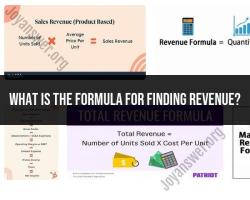Is it bad to open to many checking accounts?
Opening too many checking accounts can have both pros and cons, and whether it's "bad" or not depends on your individual financial situation and goals. Here are some of the potential advantages and disadvantages of having multiple checking accounts:
Pros:
Organization: Having separate checking accounts for different purposes can help you better organize your finances. For example, you can have one account for bills, another for savings, and another for discretionary spending.
Budgeting: Multiple checking accounts can assist in budgeting by allocating funds for specific expenses. This can make it easier to track your spending and ensure that you have money set aside for necessary expenses.
Security: If you have concerns about security or want to limit your exposure to potential fraud, you can keep a lower balance in some accounts and use them for specific purposes. This can help protect your main account from unauthorized transactions.
Interest or Rewards: Some checking accounts offer benefits like interest or rewards on balances. You can take advantage of multiple accounts to maximize these benefits by allocating your funds strategically.
Cons:
Fees: Many checking accounts have monthly maintenance fees, overdraft fees, or other charges. If you have multiple accounts, you may incur more fees than if you had just one primary account.
Complexity: Managing multiple accounts can be more complex and time-consuming. You'll need to keep track of balances, transactions, and due dates for each account, which can be overwhelming.
Minimum Balances: Some banks require minimum balances to avoid fees or to earn interest. Having multiple accounts may mean you need to maintain higher balances across all of them.
Credit Score Impact: While checking accounts themselves don't directly affect your credit score, banks may perform credit checks when you open new accounts. Multiple credit inquiries can have a temporary negative impact on your credit score.
Neglected Accounts: It's possible to forget about or neglect some of your accounts, which can lead to overlooked fees or missed payments.
Opportunity Cost: Money held in multiple checking accounts may not be earning as much interest or investment returns as it could if consolidated into a single account or used for other financial goals.
Ultimately, the decision to open multiple checking accounts should align with your financial goals and habits. If you believe that having separate accounts will help you manage your finances more effectively, minimize fees, and stay organized, it can be a good strategy. However, it's essential to carefully consider the potential downsides, such as fees and complexity, and weigh them against the benefits. Additionally, make sure you understand the terms and conditions of each account you open to make informed choices that align with your financial objectives.
Managing Multiple Checking Accounts: Is It Good or Bad?
Whether or not managing multiple checking accounts is good or bad depends on your individual circumstances and financial goals. There are both pros and cons to having multiple checking accounts.
Pros:
- Financial flexibility: Having multiple checking accounts can give you more financial flexibility. For example, you could have one checking account for your everyday expenses, another checking account for your savings goals, and a third checking account for business expenses.
- Easier budgeting: Multiple checking accounts can make it easier to budget your money. You can allocate specific amounts of money to each account for different purposes, such as groceries, bills, and entertainment.
- Better interest rates: Some banks offer higher interest rates on checking accounts with higher balances. By having multiple checking accounts, you can keep more of your money in high-yield accounts.
- Sign-up bonuses: Many banks offer sign-up bonuses for new checking accounts. You can take advantage of these bonuses to earn extra money.
Cons:
- Account fees: Some banks charge monthly maintenance fees for checking accounts. If you have multiple checking accounts, you could end up paying a lot of fees.
- Minimum balance requirements: Some banks have minimum balance requirements for checking accounts. If you don't maintain the minimum balance, you could be charged a fee.
- Overdraft fees: If you overdraw your checking account, you could be charged an overdraft fee. Overdraft fees can be expensive, so it's important to be careful when managing multiple checking accounts.
- Time commitment: Managing multiple checking accounts can be time-consuming. You need to keep track of your balances and transactions in each account.
Overall, whether or not managing multiple checking accounts is good or bad depends on your individual circumstances and financial goals. If you are able to keep track of your balances and transactions, and you can avoid paying fees, then having multiple checking accounts can be a good way to improve your financial flexibility and budgeting.
Financial Flexibility: The Impact of Opening Multiple Checking Accounts
Opening multiple checking accounts can give you more financial flexibility. For example, you could use different checking accounts for different purposes, such as:
- One checking account for everyday expenses. This could include things like groceries, gas, and bills.
- One checking account for savings goals. This could include things like saving for a down payment on a house or retirement.
- One checking account for business expenses. This could include things like inventory costs and marketing expenses.
Having multiple checking accounts can also make it easier to budget your money. You can allocate specific amounts of money to each account for different purposes. This can help you stay on track with your financial goals.
For example, you could set up a recurring transfer from your main checking account to your savings account each month. This will help you save money without even having to think about it.
You could also use multiple checking accounts to take advantage of different bank features. For example, some banks offer higher interest rates on checking accounts with higher balances. By having multiple checking accounts, you can keep more of your money in high-yield accounts.
Overall, opening multiple checking accounts can give you more financial flexibility and make it easier to budget your money. However, it's important to be aware of the potential fees and time commitment involved in managing multiple checking accounts.













